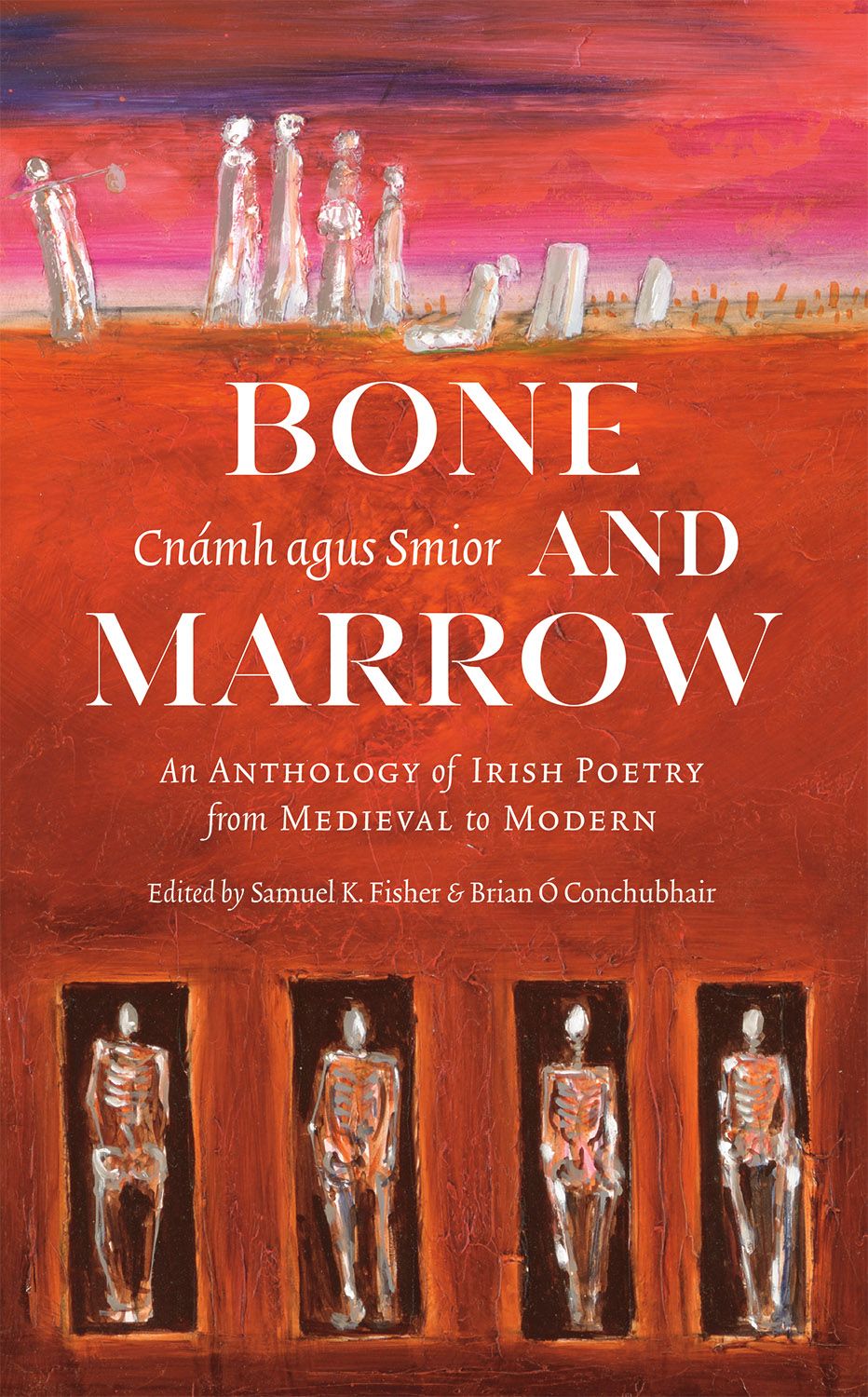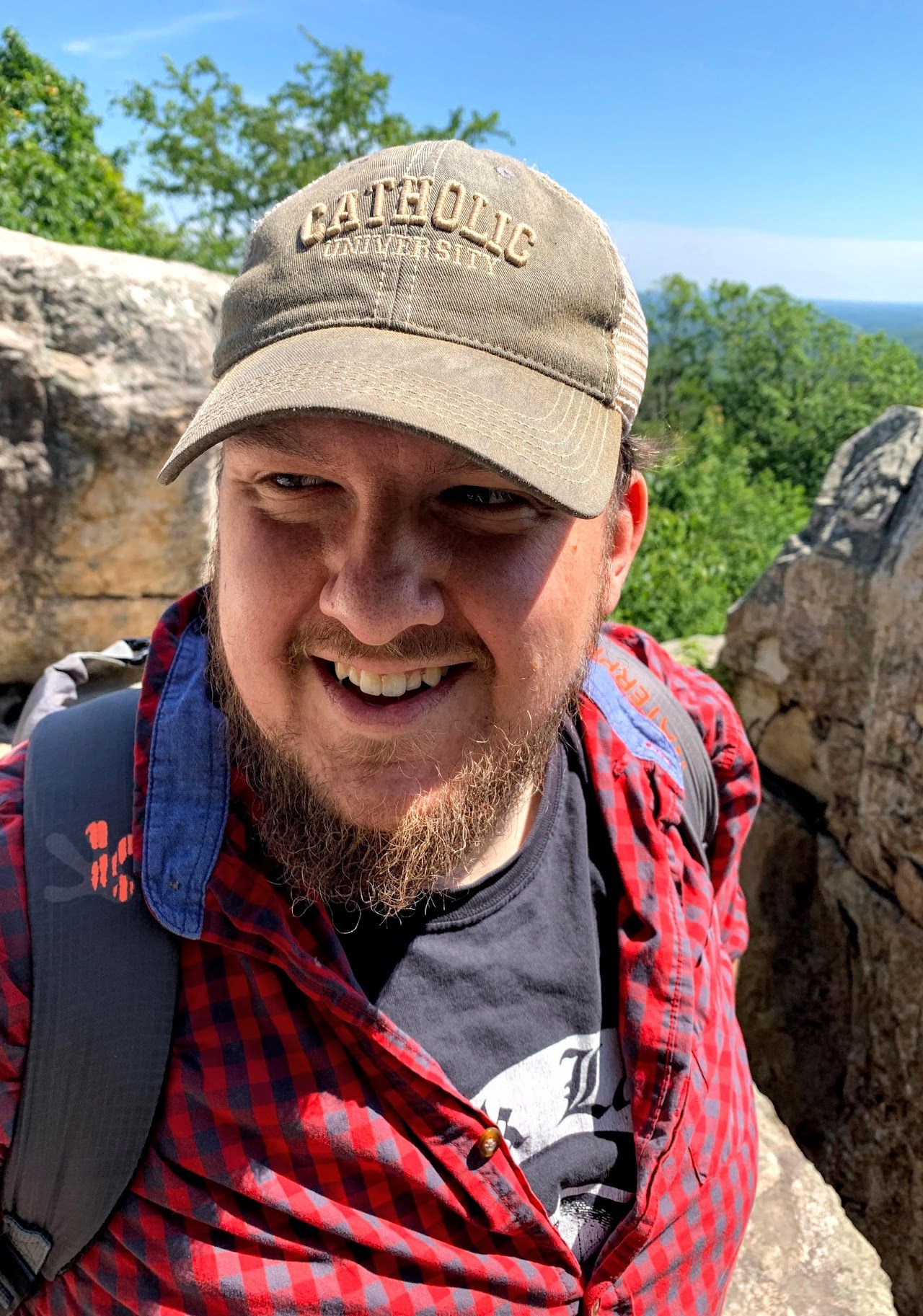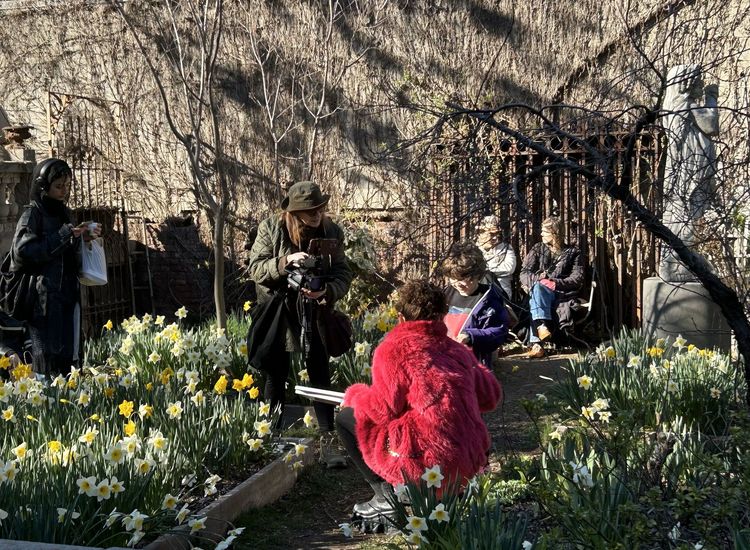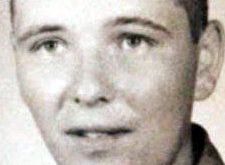In praising “Bone and Marrow/Cnámh agus Smior” as a “landmark collection,” Foster Professor of Irish History at the University of Oxford Ian McBride has said not incorporating Irish-language sources has been one of the “greatest failures” of Irish historians.
“This applies particularly to those, like me, who are fascinated by the era of Protestant Ascendancy, the Penal Laws and the Hidden Ireland. But it applies to most other periods of Irish history too,” McBride added in his recommendation of the 963-page volume covering 15 centuries and subtitled “An Anthology of Irish Poetry from Medieval to Modern.”
Eiléan Ní Chuilleanáin, who was appointed Ireland Professor of Poetry by President Higgins in 2016, wrote, “Once or twice in a generation, a book appears that opens a new way in, a new perspective on the landscape of Irish-language poetry, a rediscovery.”
“It is a product of much love and labor by editors Samuel K. Fisher and Brian Ó Conchubhair, along with a team of 24 scholars, each working within their own chronological and thematic areas of expertise,” said Jefferson Holdridge, the director of the Winston-Salem, N.C.-based Wake Forest University Press.
Its website, wfupress.wfu.edu, says, “To celebrate the book’s release, WFU Press sat down with Sam Fisher to reflect on the book’s production and editorial decisions, the goals of translation, and the lasting legacy of the poems included in the anthology.”
Fisher recalled in the detailed interview, “I started working on this book around the same time I started my first tenure-track job and I remember being told—on multiple occasions and by multiple people—not to get involved in any edited volumes, because it was way more work than you might think and you could get a lot more done just working on your own steam. And, those people were right, about the work at least—trying to keep track of everything, standardize the chapters, and keep everyone on deadline was a real bear.
“But—and I mean this—I don’t think we’d do it any other way. I’m not sure we could! Being able to draw on the expertise and generosity of so many people was a delight. It was such a pleasure to constantly be learning new things and seeing the way different contributors picked out poems and introduced them.” Later, he said, “As for my co-editor [Ó Conchubhair of the University of Notre Dame], well, that was the easy part, actually. I think we both felt very grateful through the entire process to have each other to bounce ideas off of and be excited with.
“And frankly this book couldn’t have happened without Brian’s enthusiasm and vision,” said Fisher, who is an assistant professor of history at Catholic University of America. “I did my bit, but there is a (happy) sense I have that it’s his baby—something he’s wanted to do for a long time and just needed someone confident/stupid enough to look at him and say, ‘Sure, why not? How hard could it be?’”

Samuel K. Fisher
Date of birth: June 25, 1989
Place of birth: Buffalo, N.Y.
Spouse: Sarah
Residence: Frederick, Md.
Published works: “Bone and Marrow/Cnámh agus Smior: An Anthology of Irish Poetry from Medieval to Modern”; “The Gaelic and Indian Origins of the American Revolution: Diversity and Empire in the British Atlantic, 1688-1783” (Oxford, forthcoming summer 2022) -- a comparative history of Gaelic (Irish and Scottish) peoples and American Indigenous people in the 18th-century British empire. I argue that they managed to reshape the empire in ways that made it more inclusive, and that the American Revolution was part of a backlash by formerly privileged “exclusionary patriots” against this new form of “inclusive empire.”
What is your writing routine? Are there ideal conditions?
I haven’t been good about this lately, to be honest, but this is why I know what I’m saying when I say that the most important thing is to have a routine of some kind. It’s like praying: you’ve got to show up every day, even if that mostly means sitting in silence. Do it long enough and you find out the silence is actually the answer. It gives the words meaning, when they do come. But mostly you’re there to wait for them.
What advice do you have for aspiring writers?
A sense of humor about the whole thing goes a long way. So does a devotion to the work itself. Writing in a results-oriented way is crazy-making. Don’t do it if you can help it. You probably can’t help it, but still. Try.
Name three books that are memorable in terms of your reading pleasure.
“New Seeds of Contemplation,” Thomas Merton. Really, any Merton. He’s my favorite—“No Man Is An Island” and “Contemplative Prayer” are also books I return to over and over.
“The Writing Life,” Annie Dillard. Porn for writers. Good advice too, but you’re there to see how she says it, not what she’s saying.
“A Canticle for Leibowitz,” Walter Miller. Hurts so good. The prose is gorgeous; liturgical and matter-of-fact at the same time.
What book are you currently reading?
This makes me sound unbearably pretentious but I’ve been doing “Brothers Karamazov” for the first time since college. It has a lot more to say in light of the living I’ve done since then!
Is there a book you wish you had written?
Not really. I’ve read a lot of books I’ve loved to pieces but that makes me glad their authors wrote them and not me. I end up wishing I could do my own work better than I can, or have.
If you could meet one author, living or dead, who would it be?
The historian in me feels like I should name someone from the eighteenth century (Samuel Johnson? Aogán Ó Rathaille? Thomas Jefferson?)
But I think the real answer is Merton.
What is your favorite spot in Ireland?
An Cheathrú Rua [Carraroe, Co. Galway]. A lot of very good, if hazy, memories there.








